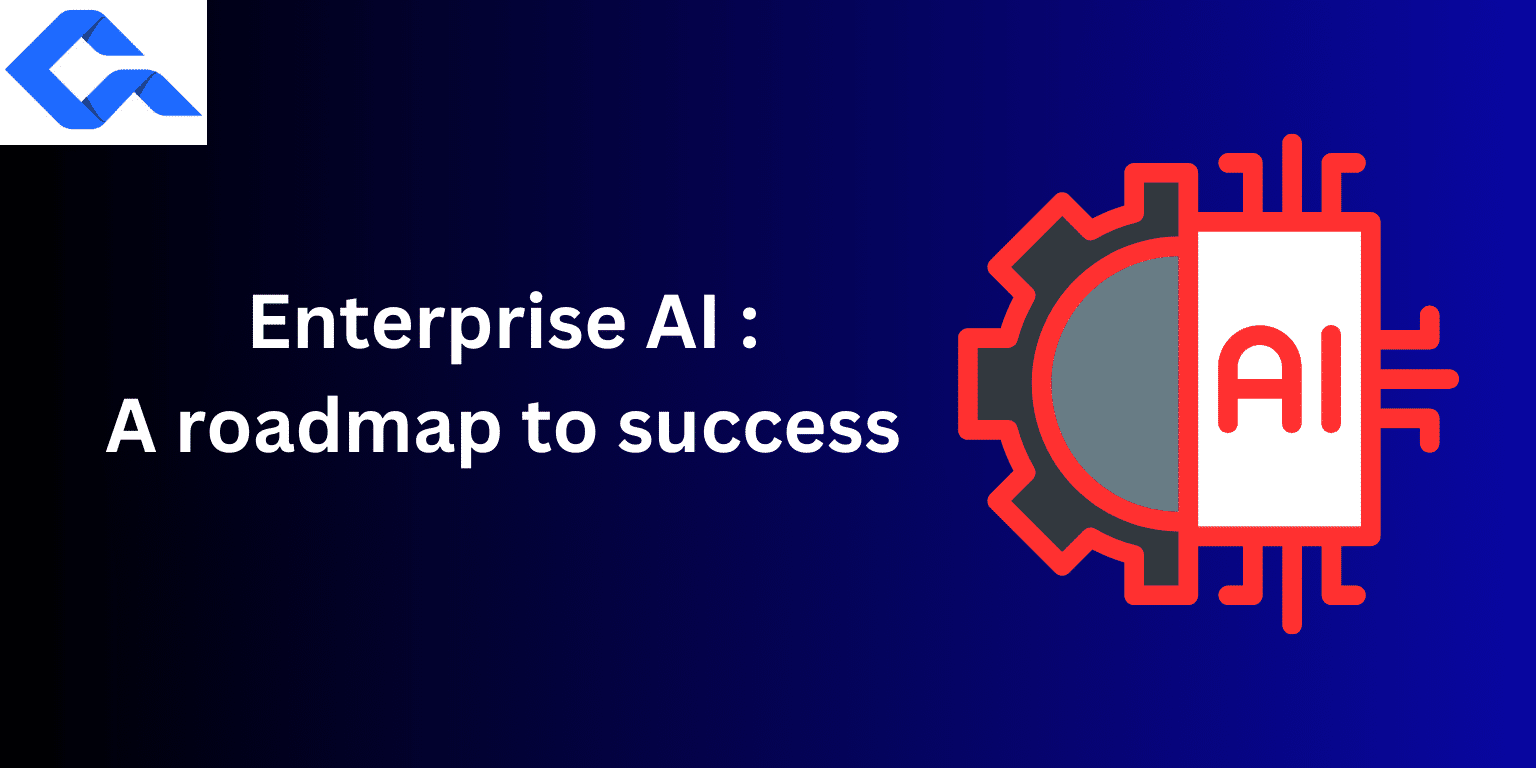Enterprise AI is the practical application of machine learning, natural language processing (NLP), and other AI-powered technologies to analyze organizational data, automate business processes, and reduce human errors. This results in a significant wave of innovative solutions across business functions. Enterprise AI also optimizes production and operational expenses to ensure business readiness for evolving scaling needs and technological requirements.
Given its multipronged advantages, several organizations across all industries have begun to adopt enterprise AI applications at scale.
Enterprise AI enables seamless processes where human errors are a relic of the past and time, and costs are slashed dramatically. The benefits of enterprise AI applications for businesses are undeniable and unprecedented.
- According to the IBM Global AI Adoption Index 2023 report, over 59% of organizations surveyed across India are actively integrating AI in their operations.
- The McKinsey Global Survey on AI stated that 65% of the people surveyed reported that organizations are regularly using Gen AI for various functions. This has nearly doubled from the previous survey, which was conducted 10 months ago.
The trend of enterprise AI adoption is promising, isn’t it? Are you considering joining the bandwagon but having second thoughts about where to begin?
Fret not! We will explore the roadmap in the following sections. For professional end-to-end support, you can consult an enterprise AI company and leave the development in the hands of experts while you strategize your business plans.
Enterprise AI Development: The Roadmap
Laying the Foundation: Strategy and Assessment
The first step is defining your business vision, mission, and objectives before diving into algorithms and enterprise AI development. Understanding and articulating specific goals will holistically guide your enterprise AI software development initiative. Ponder over questions like;
- What specific problems are you trying to solve with enterprise AI?
- Are you aiming to integrate AI in enterprise and automate processes to optimize the entire supply chain and operations, with significantly lower life risk and resource wastage?
Technological transition requires a detailed assessment of your business state. Evaluating your current state for adopting enterprise AI includes assessing the data infrastructure in place, identifying available resources, and assessing the organization’s readiness for change both at a technological and employee level.
It also includes assessing the need for training programs to prepare employees for AI enterprise software, identifying sources for data collection, and more.
Data is the core element for developing enterprise AI software. Therefore, you must ensure clean, verifiable, sufficient, and easily accessible data for efficient AI implementation and desired outcomes. If your datasets are fragmented or of inferior quality, you will be required to invest in data cleansing and management before commencing enterprise AI development projects.
The strategy phase of the roadmap also includes identifying an end-to-end enterprise AI services company that can provide the necessary expertise. A professional AI development company offers a seasoned team of AI/ML engineers, specialists, developers, data scientists, and business analysts who can craft your enterprise AI software specifically according to your business requirements and ensure the best technological functions.
Choosing the Right Path – Solution Selection and Proof of Concept
After defining objectives and assessing the baseline state, evaluate applicable AI solutions, including machine learning, natural language processing, computer vision, and robotics, selecting those best suited to the specific problem domain. Prioritize high-impact, feasible projects, avoiding over ambition. Develop a proof-of-concept (POC) to validate solution viability within a controlled environment, demonstrating potential value and informing subsequent scaling efforts.
Let’s briefly introduce Proof of Concept before proceeding with the next step in your roadmap for success in enterprise AI development.
Proof of Concept (POC)
A POC is a focused and iterative prototype designed to de-risk full-scale implementation during enterprise AI software development. It validates a proposed AI solution’s technical and business viability by evaluating its performance within a representative operational environment, identifying potential integration challenges and quantifying its impact on key performance indicators (KPIs) before committing substantial resources. This controlled experiment serves to demonstrate the feasibility and inform go/no-go decisions.
Typical Components of POC
- Problem definition that you intend to solve with enterprise AI
- Gathering and cleaning data for AI training
- Selecting AI algorithms and training AI models
- Defining KPIs and measuring POC performance
- Demonstration of results before stakeholders for final decision
Enterprise AI Software Development and Deployment
After successful prototype testing, it’s time to move towards full-scale AI enterprise software development. This phase involves custom AI solution development, integrating and upgrading existing systems, and ensuring it can manage the complexity and volume of data sets in real-world scenarios.
The development and deployment phase also requires careful consideration of AI challenges like data bias and ethical implications to check unfair or discriminatory outcomes of enterprise AI implementation. A responsible business generates trust and loyalty among users, which is highly required for business in the digital era. It is also essential to understand how enterprise AI is helping to make decisions transparently and measurably.
Scaling and Optimizing – Continuous Improvement and Monitoring
After successful deployment, enterprise AI solutions require continuous monitoring and optimization to maintain performance and efficacy. Organizations must implement robust performance monitoring mechanisms, tracking KPIs to quantify impact and recognize areas for refinement.
Given the rapidly evolving AI landscape, maintain awareness of state-of-the-art advancements and adapt strategies accordingly. Foster a culture of continuous learning, investing in training and development to equip personnel with the expertise required for effective AI system management and maintenance.
The Human Factor- Change Management and Collaboration
Enterprise AI implementation at a large scale requires thorough change management planning. AI is disruptive and challenging for several traditional job roles. Organizations need to run awareness programs about the benefits of AI, train and upskill existing employees for a man-machine collaborative workplace, and address concerns about job displacements to reduce friction and stress among employees.
As predicted by industry experts, a collaborative work environment will be the core feature of Industry 5.0. Recognize opportunities for employees to upskill and transition to new roles that leverage their unique human skills, such as creativity, critical thinking, and emotional intelligence.
Key Considerations for Successful Enterprise AI Development
- Invest in data quality and management
- Focus on key projects with high-impact
- Invest in AI talent or experienced enterprise AI company
- Be flexible and adapt to change
- Ensure fair and transparent AI
- Stay up-to-date with the latest advancements
- Track key metrics and continuously improve
- Communicate the benefits and address concerns
Why Do Businesses Need an Enterprise AI Development Company?
- Industry exposure and a team of seasoned developers and AI professionals
- Time and cost savings for organizations
- No need to hire a team for enterprise AI software development and maintenance
- Custom and scalable enterprise AI solutions for evolving business needs and growth plans
- Expertise in data collection, cleaning, integration, and overall management with ethical considerations
- Access and experience with cutting-edge algorithms and enterprise AI development and deployment methods
- End-to-end process support: Enterprise AI software development, testing, deployment, maintenance, and improvements for scaling and added services.
Conclusion
Enterprise AI offers tremendous potential for businesses willing to invest the time and effort required for successful implementation. By following this roadmap, addressing the key considerations, and partnering with a reliable enterprise AI company, you can unlock the power of enterprise AI and transform your organization for the better.

 Get in Touch
Get in Touch
